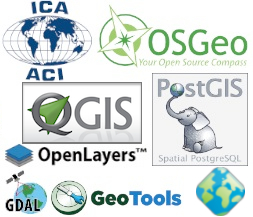News
21.03.2024: Upcoming presentation about qgis-js, QGIS core ported to WebAssembly, at the FOSSGIS conference in Hamburg
12.10.2022: Published training data, code, and models to infer 3D models of human figures on pictorial maps with a series of artificial neural networks
26.08.2022: Gave a presentation about WebAssembly for spatial libraries and virtual globes at the FOSS4G in Firenze
08.06.2021: Gave a lightning talk about the current state and future of WebAssembly at the virtual FOSSGIS conference
14.04.2021: Published two stories about how to implement a simple raymarcher in Python using the GPU (Part I, Part II)
16.03.2021: Published training data, code, and models to segment human figures, their body parts and poses on pictorial maps with convolutional neural networks
02.02.2021: Advised the Baudirektion Kanton Zürich on the creation of a web application with Vue.js
08.04.2020: New presentation and exercise materials introducing D3.js
09.01.2020: Updated the showcase comparing the usability of virtual globe toolkits
14.05.2019: Published training data, code, and models to detect maps, pictorial maps, and ancient ships with convolutional neural networks
18.03.2019: Launched an interactive 3D viewer to reproduce map projections
Introduction
The Open Source Geospatial Laboratory (OSGL) at ETH Zurich is part of the Institute of Cartography and Geoinformation, chair of Cartography, and of the GIS Competence Center. It aims to provide high-quality educative materials, training opportunities, consulting expertise, and sample projects using primarily open source technologies. Beyond, it focuses on open geodata and geospatial research.
The OSGL at ETH Zurich is actively implementing a memorandum of the International Cartographic Association (ICA) and the Open Source Geospatial Foundation (OSGeo). ICA and OSGeo signed the Memorandum of Understanding in September 2011 aiming to develop collaboration opportunities for academia, industry and government organizations on a global basis. As a result, a world-wide network of open source geospatial laboratories was created.
Our OSGL is open for all ETH Zurich members and encourages active collaborations with companies, governmental agencies, and research institutions outside ETH. Feel free to contact us with any inquiries you may have.
